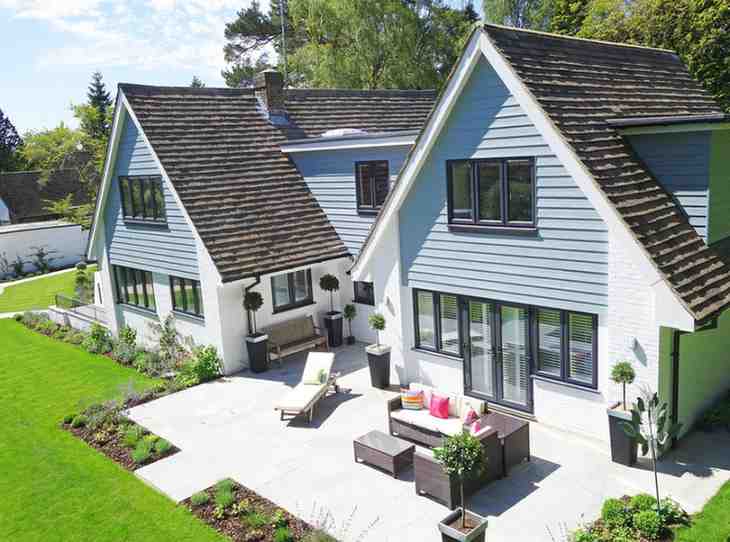When you’re managing rental properties, whether they’re homes or businesses, you’ll quickly realize that each type brings its own set of challenges. Residential rentals and commercial rentals may seem similar at first, but the differences can be quite striking. For property managers handling both types, understanding these differences is key to keeping residents happy and the business running smoothly.
Let’s take a closer look at how managing residential and commercial rentals differ, focusing on important aspects like resident expectations, leases, maintenance, and pest control.
Resident Expectations and Needs
When managing residential properties, you’re dealing with people who view the place as their home. This means they care about comfort, safety, and a welcoming environment. residents want their homes to feel cozy and clean, and they expect quick fixes for anything that disrupts that, whether it’s a leaky faucet or an ant problem.
In contrast, commercial residents are focused on their business operations. They want to know that their space will be functional and appealing to customers or clients. Commercial residents may be more concerned with things like parking, the layout of the building, and how quickly issues like a broken HVAC system can be fixed. They may not mind minor inconveniences as long as it doesn’t impact their ability to run their business.
Example:
In a residential setting, a resident might immediately report a small pest issue, like seeing a cockroach in the kitchen. They’ll expect a prompt solution to maintain a clean, comfortable living space. On the other hand, a commercial resident in an office may not report small pest problems as quickly unless it affects their customers or operations. But once they do, they’ll expect the issue to be fixed before it affects their business.
Leases
Residential leases are generally more straightforward. They’re often one-year agreements that get renewed or switched to a month-to-month arrangement. residents typically have basic needs, and there’s not a lot of room for negotiation.
Commercial leases, on the other hand, are much more complex. They can last for several years and often involve more negotiations. Commercial residents may request specific changes to the property, such as building walls, installing equipment, or adding signage. These leases also often include clauses that hold the resident responsible for more maintenance than in a residential lease.
Example:
A family renting an apartment usually signs a lease that covers the essentials like rent, security deposit, and the landlord’s responsibility for major repairs. A business renting a storefront, however, might sign a lease that also covers shared costs for things like building security or upkeep of the parking lot. They might even negotiate a clause that allows them to redesign part of the space to suit their business needs.
Maintenance and Repairs
Residential residents often expect the property manager or landlord to handle all maintenance issues, from fixing a clogged drain to dealing with pest infestations. For most residential leases, it’s clear that the property manager is responsible for keeping the home in good condition, and the resident can call for help whenever there’s a problem.
With commercial rentals, the responsibilities are usually split. residents might be responsible for some repairs, especially for the interior of their unit, while the property manager or building owner takes care of structural or shared areas, like the roof or parking lot. Commercial residents may also handle their own pest control needs unless it’s something that affects the whole building.
Example:
A property manager handling a residential apartment might need to respond quickly to calls about a broken air conditioner or mice in the pantry. In a commercial building, the residents might be responsible for their own air conditioning repairs or hiring a pest control company if the issue is within their individual space.
Pest Control
Pest control is a major concern for both residential and commercial property managers, but it plays out differently in each setting. Residential residents may feel more personally affected by pests since their home is their private space. A single bug sighting can cause concern, and residents will often expect immediate action.
In commercial spaces, especially those that involve food services, pest control can be even more critical, but it’s often handled differently. Businesses like restaurants or grocery stores usually take care of their own pest control, while office buildings may leave it to the property manager. The urgency can depend on how visible or impactful the pests are to customers or operations.
For property managers handling both types of rentals, partnering with a service like Pest Share can make things easier. Pest Share allows residents to directly access pest control services, taking a lot of the pressure off property managers. With their system, residents can report pest problems quickly, and Pest Share handles the rest, including scheduling the service. This can be a huge help for both residential and commercial settings, ensuring that pest problems are addressed before they get out of hand.
Example:
A residential resident dealing with ants might immediately reach out for help, expecting the property manager to fix the issue right away. With Pest Share, the resident can report the problem, and the pest control service will step in. In a commercial building, the property manager might only get involved if the pest problem spreads to shared spaces, but again, Pest Share can make sure everything is handled smoothly and quickly.
Property Upkeep and Improvements
Property managers usually focus on routine maintenance, like landscaping or repainting, to keep residents happy. The goal is to create a pleasant living environment, and residents typically don’t have a say in larger changes.
For commercial rentals, property upkeep is often tied to the type of business. A retail space might need regular updates to stay attractive to customers, while office buildings may focus more on keeping shared areas, like lobbies and elevators, in top shape. Commercial residents may even invest in improvements themselves, like redesigning their storefront or upgrading equipment, to meet their business needs.
Example:
A property manager overseeing a residential apartment building might plan seasonal maintenance, like cleaning gutters or trimming trees, to keep the property looking good. For a commercial shopping center, the focus might be on making sure the parking lot is well-maintained and the signage is visible and up-to-date, so the businesses inside look appealing to customers.
Communication with residents
Communication in residential rentals tends to be more personal. residents might reach out to their property manager directly if they have a problem, whether it’s about maintenance, rent, or something else. The relationship can feel more familiar since residents are often in regular contact with their property manager.
With commercial properties, communication is usually more formal and business-like. residents might have less frequent contact with their property manager, especially if things are running smoothly. When communication does happen, it’s often about specific issues like lease terms or major repairs.
Example:
A residential resident might text or call the property manager when they notice a leaky pipe. In a commercial setting, residents might schedule a meeting or send a formal email when they want to discuss building improvements or maintenance concerns.
Vacancy Concerns
Residential rentals usually have shorter vacancies between residents, and property managers often have a good pipeline of renters. Finding a new resident for an apartment or house typically doesn’t take too long, especially in areas with high demand.
Commercial rentals, however, can have longer vacancy periods. Finding a business to rent a space often takes more time since there are fewer potential residents, and businesses may be more selective about location, layout, and lease terms. This means that commercial property managers may need to work harder to market their spaces and keep vacancies to a minimum.
Example:
A property manager may only need a few weeks to find a new family for a vacant apartment. But renting out a commercial storefront could take months, especially if the space needs updates or the market is slow.
In the end, managing residential and commercial rentals requires different approaches. From understanding resident needs to handling leases and maintenance, each type of property comes with its own set of challenges. By recognizing these differences and using tools like Pest Share for pest control, property managers can keep things running smoothly and ensure that both their residential and commercial residents are satisfied.






